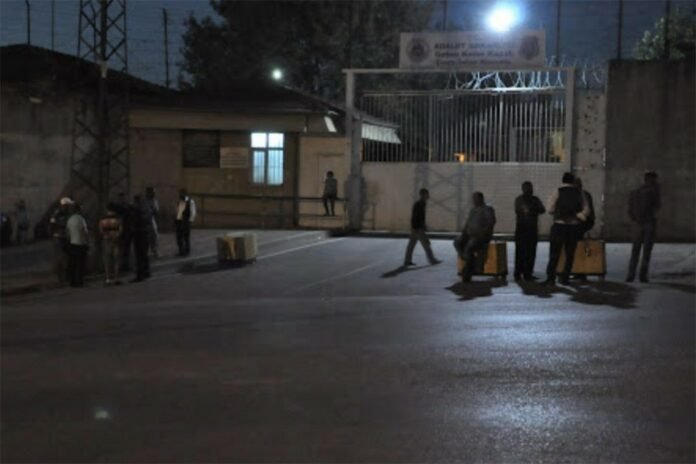Turkey had the highest incarceration rate of the 47 Council of Europe (CoE) countries as of January 2020, with 357 prisoners per 100,000 inhabitants, while the overall European imprisonment rate fell slightly, according to CoE’s annual report.
The report, titled “Europe’s Annual Penal Statistics on Prison Populations for 2020,” revealed that Turkey had the most crowded prisons in Europe with 127 inmates per 100 available places on January 31, 2020.
For the first time information was collected on the number of children living with their mothers in penal institutions, a total of 1,608 children in 37 administrations. According to the data provided by the Council of Europe Annual Penal Statistics (SPACE) research team, 803 children, nearly half of the total number, live with their mothers in Turkish prisons.
Out of 30,524 prisoners convicted for terrorism charges in the CoE member states, 29,827 are alone in Turkey, the report underlined.
The annual report indicated that there are 297,019 inmates in Turkish penal institutions despite the fact that their capacity is 233,194 and that the country’s prison population rate (357 prisoners per 100,000 inhabitants) has increased 115.3 percent in the last 10 years.
In addition to Turkey, Russia (356), Georgia (264), Lithuania (220) Azerbaijan (209), Czech Republic (197), Poland (195), Slovak Republic (193) and Estonia (184) were the CoE states with the highest incarceration rates in January 2020.
The decreasing imprisonment rate (the number of persons in prison per 100,000 inhabitants) in Europe has consolidated a trend that started in 2013, the report said. Since 2013, when it peaked at 131 inmates per 100,000 inhabitants, this rate has fallen every year, reaching an overall decline of 20 percent.
The European overall prison density (90.3 inmates for every 100 available places) also remained stable.
According to Professor Marcelo Aebi, head of the SPACE research team from the University of Lausanne, the reduction partly reflects the decrease of traditional offenses like theft and robbery over that period, which has not been compensated for by the increase of cyber-related offenses, namely cyber-frauds.
“Cybercrimes lead to less convictions because the perpetrators are often based outside the national territory and are difficult to trace and sanction,” Aebi said.















